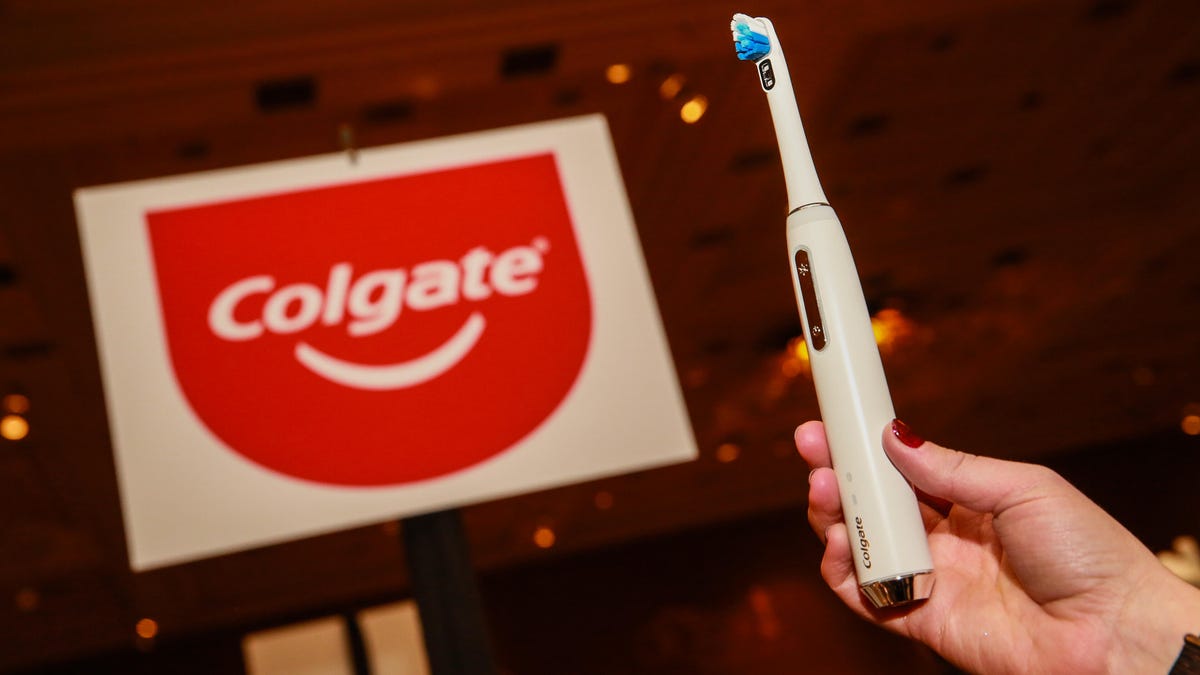3 smart toothbrushes from CES 2020 you'll want this year
Pressure and plaque sensors let you know how good you are at brushing.

The Colgate Plaqless Pro brush.
Electric toothbrushes are nothing new, but oral health companies keep on innovating and releasing new technology that supports better oral hygiene. While a manual toothbrush will serve you just fine, these feature-packed new brushes are supposed to help reduce the risk of tooth decay, gum disease and other dental complications. At CES 2020, two household names -- Oral-B and Colgate -- launched new smart toothbrushes that coach you to develop better brushing habits.
Oral-B iO
The Oral-B iO brush and app.
Oral-B consistently puts new and improved electric toothbrushes on the market. At CES 2020, the company unveiled the Oral-B iO, a smart toothbrush that has a new magnetic drive to make the motor quieter, sensors that know which quadrant of your mouth you're brushing, and an AI coaching app that helps you thoroughly clean all parts of your mouth. It even asks questions about your gum health.
The iO has multiple cleaning modes and a pressure sensor that tells you if you're brushing too hard -- an important component because many people unknowingly expedite gum recession by brushing too vigorously.
CNET Wellness editor Sarah Mitroff tested the Oral-B iO during CES week and, while she enjoyed the coaching aspect of the brush, said that she "found that it wasn't much quieter than the less-expensive, basic Oral-B electric brush that I already have." That's based on just one night of testing, and CNET looks forward to further testing the brush this year.
Colgate Plaqless Pro
The Colgate Plaqless Pro brush may have one of the coolest new features for electric toothbrushes: a plaque detector. A sensor lets you know when you've removed all of the plaque from your teeth every time you brush, so it might help fend off buildup more than other smart toothbrushes.
The plaque-detecting mechanism works via a light on the underside of the brush head, which makes plaque look blue. The sensor detects those blue areas and knows when they disappear. When you've successfully removed the plaque, the light turns white and you can move onto another part of your mouth. The Plaqless Pro is, according to the company's press release, the first brush available to consumers that has this function.
On top of the plaque sensor, the Colgate Plaqless Pro brush has all the things you might look for in a smart toothbrush: multiple cleaning modes, a coaching app, mouth mapping sensors, pressure sensors and brushing analytics.
Bonus: Y-Brush
The Y-Brush.
Y-Brush came back to CES this year, after debuting at CES 2019. This is the toothbrush that promises to clean all of your teeth in 10 seconds, battling the long-held advice that you must brush for at least two minutes. The mouth-guard-shaped brush works by covering all of your teeth with motorized nylon bristles.
For people who despise brushing their teeth, Y-Brush offers extreme efficiency and speed. However, it's still undergoing clinical testing to determine its efficacy, so maybe don't ditch your other toothbrush just yet (plus, they won't start shipping until March). And you still need to floss, because despite its great concept, Y-Brush doesn't reach the nooks and crannies in between your teeth.
Why smart toothbrushes?
Well, because quite frankly, some people aren't very good at brushing their teeth. You might be a perfect brusher, but I personally think of oral hygiene as a chore. I keep my teeth clean, don't get me wrong, but I'm never excited about flossing, going to the dentist or even spending the full recommended two minutes brushing. I'm just not -- and smart toothbrushes can help people like me.
The biggest downside is that smart toothbrushes aren't cheap, but you're much more likely to get good use out of a product you spent a large chunk of change on. Plus, smart toothbrushes can make brushing more structured, which helps people who like to have goals in place for all things, even things as simple as brushing for a full two minutes. Having analytics about your oral hygiene habits in a companion app is great for data nerds who love to see improvements in health metrics.
Most importantly, smart toothbrushes (and electric toothbrushes in general) tend to be more effective than manual toothbrushes and can legitimately improve the health of your teeth and gums.

